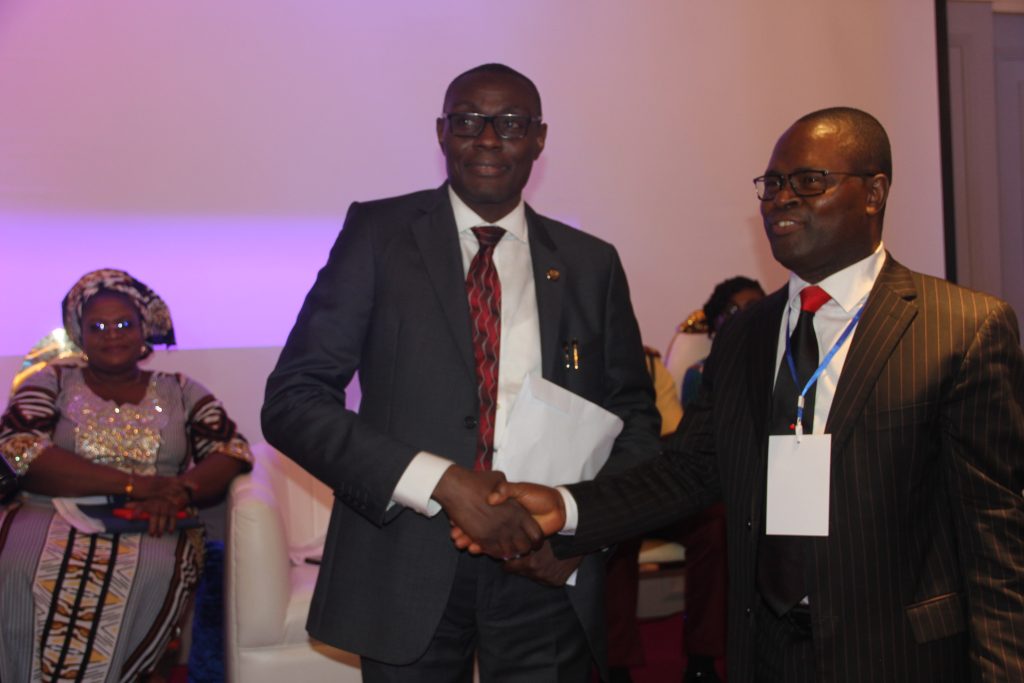…Dr. Musa describes transport infrastructure as economies’ lifeblood!
The Chairman and Chief Consultant, Global Transport Policy, Dr Oluwasegun Musa has described transport infrastructure as the lifeblood of economies, an elixir that truly facilitates the movement of goods, people, and ideas.
The Global Transport Policy GTP Chief promoter stated this in Lagos last week, during a stakeholders’ Roundtable to chart a strategic roadmap for the transport industry, aimed at fostering the long-needed economic growth

“Transport infrastructure serves as the lifeblood of economies, facilitating the movement of goods, people, and ideas. It is the backbone upon which industries thrive, businesses expand, and innovation flourishes”, Dr. Musa said, noting however, that the mere existence of transportation networks may still be inadequate.
“What truly catalyzes economic growth is the strategic intervention of policies designed to optimize these networks, ensuring efficiency, sustainability, and inclusivity.
“Your Excellences and distinguished technocrats, in dissecting the building blocks for economic growth through transport infrastructure, let us first examine the critical role of connectivity. Connectivity goes beyond geographical boundaries, integrating different regions into cohesive economic units.
“It is important to recognize that the development of robust transportation networks is not merely about connecting cities and regions; it is about laying the foundation for sustained economic growth, societal advancement, and global competitiveness.

“Whether it be roads, pipelines, railways, airways, or maritime routes, the seamless interconnectivity of transport networks fosters trade, spurs investment, and promotes the exchange of knowledge and expertise”, the transport guru highlighted further, stressing that by investing in last-mile connectivity, Nigeria could ensure that the benefits of economic growth are shared by all segments of society.
“Therefore, our first building block is the establishment of a comprehensive, multimodal transport system that enhances connectivity within and beyond our borders, stretching to neighbouring countries to further amplify the benefits of the African Continental Free Trade Area (AfCFTA) to boost intra-African trade.

“But beyond mere technological advancements, it is the development of policies that truly reinforces the success of intermodal transport in developed nations. Advanced governments recognize the imperative of fostering an enabling environment conducive to intermodal integration. They invest in infrastructure, enact regulatory frameworks, and incentivize collaboration between public and private stakeholders.
“It is also imperative to understand that sustainability lies at the heart of 21st-century transportation policy. Developed nations lead the charge in decarbonizing their transport systems, embracing cleaner fuels, electrification, and renewable energy sources. Intermodal transport, with its inherent efficiency gains and reduced environmental footprint, stands as a cornerstone in the quest for sustainability.
“It is evident that the Nigerian government’s commitment to infrastructure development is clearly outlined in the National Integrated Infrastructure Master Plan (NIIMP), presenting opportunities for public-private partnerships and foreign investments.
“We are also aware of Initiatives such as the Presidential Infrastructure Development Fund (PIDF) aimed at accelerating the execution of critical infrastructure projects including the transport industry. With various states joining the fray, it is obvious that it is no longer business as usual.

“As seasoned pathfinders with a vibrant faculty of sound technocrats and industry thoroughbreds, Global Transport Policy is committed to best-in-class transformation of the Nigerian transport industry. Its assemblage of committed transport crusaders with robust global and local insight ensures a holistic approach to execution, this is to enable global competitiveness”, he posited.
Speaking on the magazine, Dr Musa described and unveiled the maiden edition as ‘The Rail’ edition.
“It is intentionally heavy on rail with insights across the world to support the Federal Government’s efforts on rail development. Watch out for the next edition as we will be spotlighting the aviation and other transport sectors.

“In conclusion, revitalising Nigeria’s transport infrastructure requires bold vision, decisive action, and unwavering commitment.
“By prioritizing strategic policy intervention, we can lay the foundation for sustainable economic growth, job creation, and improved quality of life for all Nigerians”, he stated, stressing that if all the relevant stakeholders synergize, the full potential of the nation’s economy can be unlocked.
“Together, we can unlock the full potential of Nigeria’s economy and propel our nation towards a brighter future. We can! So let’s rise, bold and daring for the transformation we seek!”, he further stressed.
Speaking also on the occasion, the Arrowhead of the Chartered Institute of Transport Administration (CIoTA) of Nigeria, Segun Obayendo, while celebrating the presence of all the relevant stakeholders needed for a functional intermodal system, spanning, Aviation, Roads, Rail, Inland waterways ferries and Maritime, he however stressed the need for professionalism, saying the terrain must not be seen as an all comers affair.
He maintained that until professionals drive the wheel of transportation in Nigeria, the desired benefits might not be optimised!
He lamented the absence of any holistic national transport policy, even while transportation remains the bedrock of the economy.
Similarly, another transport expert stressed that only Power comes before transport, adding that safe and functional movement is sine qua non to development, progress and happiness.
He acknowledged that without Government getting transport right, the economy will never grow as fast or impactful as it should.
“Transportation is the backbone of the economy…”, he stated